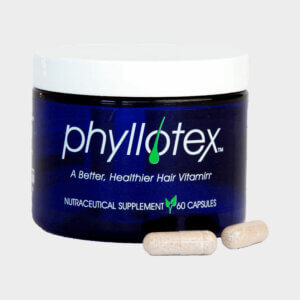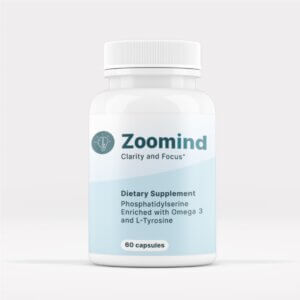 Anyone who’s been taking a hair growth supplement like Phyllotex and is starting to delight in seeing new hair sprouting might be wondering, “Do I have to keep taking this forever?” It’s a fair question, and a common one. After all, the goal is progress, not lifelong dependency. But like many things related to our health, the answer isn’t a simple yes or no.
Anyone who’s been taking a hair growth supplement like Phyllotex and is starting to delight in seeing new hair sprouting might be wondering, “Do I have to keep taking this forever?” It’s a fair question, and a common one. After all, the goal is progress, not lifelong dependency. But like many things related to our health, the answer isn’t a simple yes or no.
I will start by looking at what hair growth supplements actually do, how Phyllotex fits into the picture, and what might happen if you stop taking them after a while.
Why does hair loss occur in the first place?
Thinning hair and hair loss can creep in for many reasons. For most men, it’s a gradual process tied to genetics and age, classic male pattern baldness. For women, hormonal changes (especially around menopause), stress, and autoimmune disorders are common culprits. Even nutrient deficiencies or side effects from medications can cause the hairline to retreat or the part to widen.
That’s where hair growth supplements come in. They aim to restore balance, nutritional, and hormonal, or both, and create a healthier environment for the scalp and follicles. Phyllotex is designed to reduce inflammation and block DHT (a hormone that can shrink hair follicles), while also boosting circulation and delivering nutrients that support hair health.
How do hair supplements like Phyllotex work?
 If the underlying issue is poor nutrition, the answer is that supplements that contain iron, biotin, vitamin D, or zinc can make a noticeable difference in hair health if there’s a deficiency. But when it comes to genetic or hormonal hair loss, supplements need to do more. That’s where Phyllotex distinguishes itself; it’s formulated not just to nourish, but to address multiple mechanisms behind thinning hair.
If the underlying issue is poor nutrition, the answer is that supplements that contain iron, biotin, vitamin D, or zinc can make a noticeable difference in hair health if there’s a deficiency. But when it comes to genetic or hormonal hair loss, supplements need to do more. That’s where Phyllotex distinguishes itself; it’s formulated not just to nourish, but to address multiple mechanisms behind thinning hair.
Phyllotex has shown promising results in user feedback of hair regrowth, with many noticing a doubling in hair count within three months, and further improvement after six months. It’s not a magic pill, but it’s one of the few that supports hair from multiple angles: inflammation, circulation, and hormone modulation.
How long do you need to take a hair supplement?
Hair grows slowly, about half an inch per month at best, so it’s no surprise that visible results from supplements can take months, even years. Think of it like planting a garden – don’t stop watering the seedlings just because a few green shoots appear.
In the first few months, most Phyllotex users see improvements in texture and reduced shedding. often noticeable in 90 days, but real transformation of thicker growth may take six months or more. This is a long-game kind of strategy.
What happens if you stop taking Phyllotex?
This is the 64-dollar question.
A body that was relying on the supplement to deliver nutrients it wasn’t getting elsewhere, like folic acid, iron, zinc, or collagen, could have progress slowly reversed when the supplementation is stopped. There might be increased shedding, slower regrowth, or a return to pre-supplement texture.
That said, hair doesn’t fall out immediately the moment anyone stops taking Phyllotex. It’s more like easing off the gas pedal, as the scalp gradually loses the boost it had been receiving.
Importantly, if the root cause of hair loss has been addressed (say, a thyroid imbalance or iron deficiency) and diet or medication has corrected it, a person may not need the supplement long-term. But if the hair loss is ongoing and driven by genetic or age-related changes, then continuing Phyllotex could help maintain the positive results.
Are there side effects from stopping hair supplements?
Not usually. Hair supplements aren’t habit-forming or biologically addictive like some medications. Most people don’t experience any unpleasant side effects when stopping. However, they may miss the benefits, shinier, fuller hair, and reduced shedding, which can be frustrating after months of progress.
The good news is it can always be restarted if a setback is noticed, and Phyllotex is considered safe for ongoing use in most healthy individuals. As always, if there are questions, talking to a doctor or dermatologist is a good move.
Summary
Hair growth is never just skin deep; it’s tied to everything from diet to age, stress levels, hormones, and even genetics. Phyllotex offers a science-backed, well-rounded way to support hair health from the inside out. But it’s not an either-or position. With the right strategy, it’s possible to decide if (or when) to taper off while keeping the progress intact.
If at the crossroads of “keep going or stop,” the best compass is the current state of hair, along with overall health. Keep feeding the inner body what it needs, whether that’s through supplements, food, or a bit of both.
FAQs
How long should I stay on Phyllotex? 
For best results, most users take Phyllotex for at least 3 to 6 months. Some continue using it for much longer to maintain results, especially if their hair loss is genetic or hormonal in origin. There’s no strict upper limit; long-term use is generally considered safe.
Can Phyllotex cause hair loss if I stop taking it?
Not directly. Stopping the supplement doesn’t trigger hair loss, but if the scalp was getting essential nutrients from Phyllotex that’s no longer being supplied, the hair may gradually revert to its earlier condition. The key is to address the root cause of hair loss.
Is there a withdrawal period after stopping hair growth supplements?
No, hair growth supplements like Phyllotex don’t cause withdrawal. There might be visible shedding or slower growth over time, but there’s no rebound effect like there can be with some medications.
Will my hair fall out again if I stop taking supplements?
It depends on why hair loss occurred in the first place. If the supplement was treating a deficiency or hormonal issue, and that problem returns, hair loss may follow. But if underlying health is stable and the basic diet is strong, it’s possible to maintain the results even after stopping.
Can hair thinning stop naturally without supplements?
Yes, sometimes it can. If the hair loss was triggered by a temporary issue like stress, illness, or postpartum hormone changes, then hair may start growing normally again on its own. But for chronic issues, ongoing support may be necessary.
Does Phyllotex work for both men and women?
Yes, Phyllotex is formulated to be safe and effective for both men and women. It targets common causes of hair loss that affect both genders, including inflammation, DHT sensitivity, and poor scalp circulation.
Can I take Phyllotex with other vitamins or medications?
Generally, yes, but it’s best to consult with a doctor or pharmacist if taking other supplements or medications. Some ingredients may overlap or interact, especially if on blood thinners, hormone therapy, or thyroid medication.
How do I know if I need a hair supplement?
If experiencing more shedding than usual, seeing thinning at the parting or temples, or have brittle, slow-growing hair, a supplement like Phyllotex has been shown to help. Blood tests can also reveal deficiencies in key nutrients like iron or vitamin D.
Is Phyllotex vegan and cruelty-free?
Phyllotex is free from animal-derived ingredients and is not tested on animals. It’s also free from artificial colors, gluten, and common allergens, making it a clean choice for conscious consumers.
What makes Phyllotex different from other hair supplements?
Phyllotex stands out for its multi-targeted formula, it combines anti-inflammatory support, scalp microcirculation boosters, and DHT blockers in a single product. Most supplements only address one of these factors.








